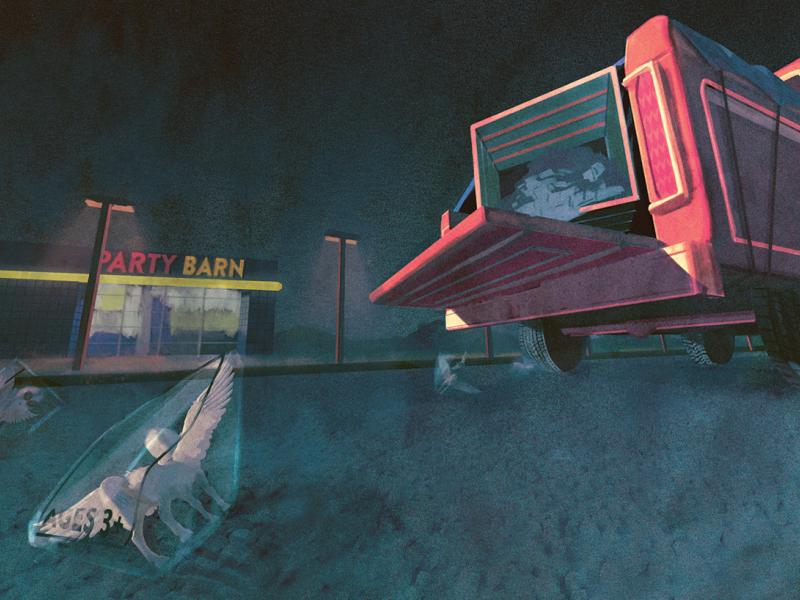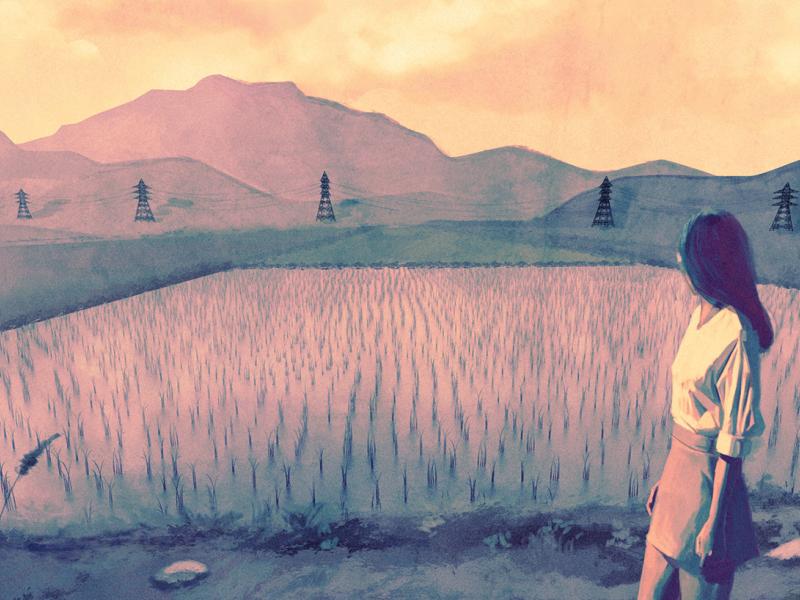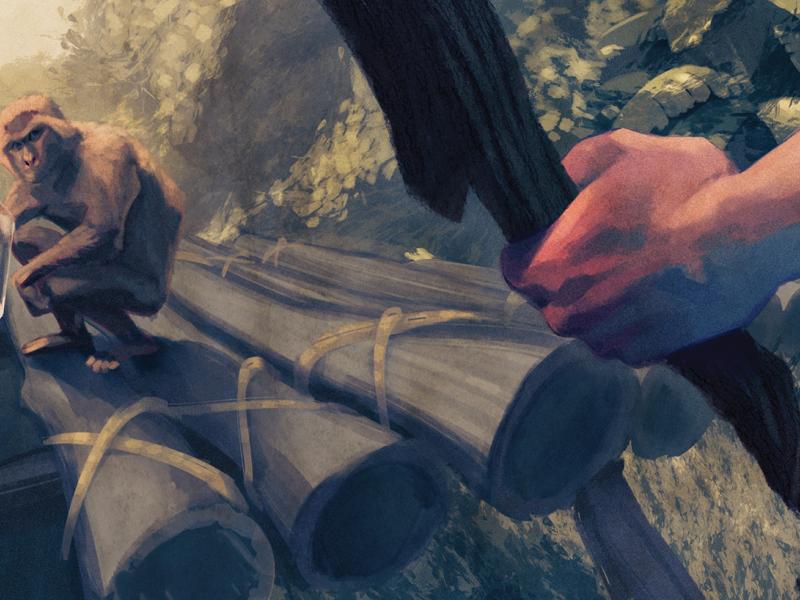By Che Yeun, Illustrations by Corey Brickley
You hate the way the goats look at you, like you’re a stranger. Even when you walk up with buckets of grain for the last meal of the day. With your mother, they would huddle close and gnaw at the grass stains on her boots. But you are an outsider to them. The old ones retreat, their black hair matted with dust. They prefer that you leave the food and go. The pregnant one stays in the shadows of the pen. All you can see are her paranoid eyes, round yellow stones. She’ll stop acting so crazy after birth, but you remind yourself you won’t stick around that long. You won’t be the one bottle-feeding the baby like a little brother, swathed in cotton blankets. Umma can do that. That’s the choice she’s made, this is where she wants to trickle out the rest of her years toward a tasteless end. You won’t stick around for that, either. By then you’ll be in Seoul, with Jun. He’ll teach you the taste of Jamaican coffee; he’ll take you shopping for fur in the middle of July. You’ll come back to visit Umma, of course, every harvest holiday and new year. But when it’s your turn to grow old and die, you’ll be wrapped in Siberian mink.
“How are they?” Umma asks when you come back from feeding. “Did they eat enough? Is everyone there?”
“They’re great,” you tell her, even though you forgot to count.
You hate the breakfast Umma makes, brown rice wrapped in perilla leaves that scratch the inside of your mouth. But you chew and chew, under the sweet spot of the ceiling fan, surrounded by pots and pans turned over on the floor to dry—next to the chili peppers spread out on newspapers to dry, which are next to the thick blades of grass laid out on more newspapers to dry. Remember to stack the pots when they finish drying. Remember to collect the hay and mix it into the feed tomorrow. Remember to count the goats next time, instead of rushing out the gate.
In the morning Umma gathers her prayer beads for her walk to temple. You hate how she spends all her time and money on the goats, on the monks, everyone but herself. More and more, she refuses to bother with the rituals of civilization. Her fingernails grow until they break off. Her toothbrush is always dry. She no longer wears underwear under her house skirt. When she grows old, really old, no one will be able to tell her apart from the goats.
Once in a while the weather forces her to stay home. Every August, the monsoon comes strong enough to knock dragonflies dead out of the air. The two of you will usually sit by the window together, watching the summer flood. Through the closed windows you can hear the goats bleating for dry land. Sometimes the rain crashes so hard it bounces off the cement path, but even then you can still hear them.





1 Comment